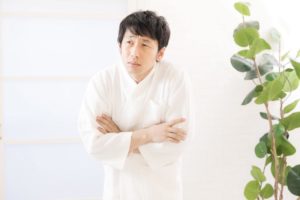“tsuma” vs. “yome”:Have You Been Still Getting Confused?
What is the difference between “妻(tsuma) and 嫁(yome)“? They have subtle differences. When you talk about your wife in public, which is correct: 私の妻 or 私の嫁? What about 兄/姉の妻 or 兄/姉の嫁?After reading this, you would be answering this question. Let me introduce what their subtle differences are and how you correctly use them such as native speakers today!
妻 (tsuma) / 嫁 (yome)
Wife / 新娘/妻子 / 며느리/아내 / Cô dâu/Vợ
“妻(tsuma) and 嫁(yome)” means “Wife” and which has been used as the meaning of “A married woman considered in relation to her spouse”. Some men who got married her call their wife “妻 and 嫁” which mean “Wife”. Although both of them are correct and native speakers don’t feel weird about them, an antonym of “妻” is a husband and an antonym of “嫁” is “son-in-law”. So, basically when a husband calls her “嫁” is wrong. The word “嫁” is for a husband’s parents and brothers/sisters who could call her “息子の嫁” and “兄/姉/弟/妹の嫁“. However, for us, native speakers tend to use “嫁” as their wife and even it sounds casual than “妻“. Thus, only a husband could call their wife “妻“, his parents won’t be able to call his wife “妻“, that would be “嫁“. Furthermore, the others call his wife “奥さん or 奥様“. “奥様” sounds polite than “奥さん” which does not mean people call her “奥さん” is not rude. Lastly, when you use “嫁” in daily conversations and “妻” in public, you sound native speaker-ish.
\ Learn Japanese with a personal native teacher!/
Sample
お兄ちゃんのお嫁さんは超優しそうだったよ! (My brother’s wife looked so kind!) (我哥哥的老婆看起来好温柔啊!) (오빠 아내는 엄청 상냥할 것 같더라!) (Chị dâu tớ nhìn siêu hiền luôn ý!) (onīchan no oyome san wa chō yasashisō datta yo!)


良いお嫁さんになれますね! (You’ll make a good wife.) (你会成为一个好妻子的!) (좋은 신부가 될 수 있을 것 같네요!) (Bạn sẽ là một người vợ tốt đấy!) (ī oyomesan ni naremasu ne!)


長男の嫁にはなりたくない。草 (I don’t wanna be a wife of the eldest son. hehe) (我不想成为长媳。草) (맏며느리가 되고 싶진 않아. ㅋㅋ) (Tớ không muốn làm con dâu trưởng đâu!) (chōnan no yome ni wa naritaku nai. kusa)


何で? (Why?) (为什么?) (왜?) (Tại sao?) (nande?)


妻の手料理よりちょっとだけおいしいです。 (It’s better than my wife’s cooking.) (比我老婆做的料理好吃一点点。) (아내의 수제 요리보다 조금 맛있습니다.) (Chỉ ngon hơn món ăn vợ tôi làm một chút thôi.) (tsuma no teryōri yori chotto dake oishī desu.)


妻も一緒にいい? (Can my wife come with me?) (妻子也一起可以吗?) (아내도 함께 괜찮아?) (Vợ tớ đi cùng được không?) (tsuma mo issho ni ī?)


妻は買い物に行ってるよ。 (My wife has gone shopping.) (我老婆买东西去了。) (아내는 쇼핑하러 갔어.) (Vợ tớ đang đi mua sắm.) (tsuma wa kaimono ni itteru yo.)


妻の出産が近づいてきたよ! (The baby is coming any minute now!) (我老婆的产期临近了!) (아내의 출산이 다가 왔어!) (Sắp đến ngày vợ tớ sinh rồi!) (tsuma no shussan ga chikadzuite kita yo!)
\ Learn more! /









Comments